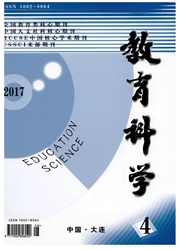

 中文摘要:
中文摘要:
美国研究型大学自20世纪90年代起拉起了本科教育改革的帷幕。本文通过斯坦福大学的新生入门研讨课、大学二年级项目、本科生科研项目以及荣誉学院的四项本科教育改革举措及其成效的分析,发现美国研究型大学本科教育改革具有以下特点:改革项目自成体系,项目重点各有不同;强调小班研讨,促进师生互动;改革经费充足,学生资助多样;开展追踪评估,强调学生视角的评价。这为我国建设世界一流大学提供了重要启示:通过支持本科生参与科研,缓解研究型大学教学与科研的矛盾;本科教学应从"以教师为中心"的讲授模式转变为"以学生为中心"的互动参与模式;本科教育质量的提高不仅依赖于本科生教育改革的实施,更有赖于持续不断的评估。
 英文摘要:
英文摘要:
Since 1990 sresearch universities in the United States launched undergraduate education reforms and set up a series of distinguished undergraduate programs.This paper reviews actions and effectiveness of four undergraduate education programs at Stanford University,including Introductory Seminars,Sophomore College,Summer Research program and Honors College,based on WASC's evaluation on the undergraduate education reform.Furthermore,the paper discusses the characteristics of undergraduate education at Stanford University and implication of how to build world-class universities in China.
 同期刊论文项目
同期刊论文项目
 同项目期刊论文
同项目期刊论文
 期刊信息
期刊信息
